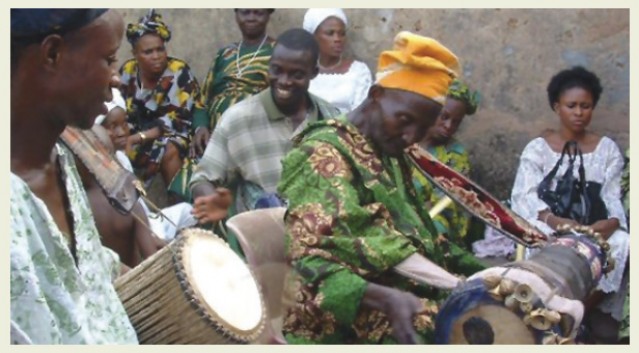
The worship of the spiritual forces deities called Orisa has a long and venerable history that dates back thousands of years amongst the Yoruba and Southwestern Nigeria.
These religious traditions spread to the Americas with the enslavement and indentured servitude of Yoruba during the late 18th and 19th centuries. In spite of colonialism in Africa and the Americas, faithful Orisa worshipers on both sides of the Atlantic have made great sacrifices to ensure that the spiritual traditions of their forefathers were passed on from one generation to the next for the wellbeing and spiritual evolution of their families and communities.
In Nigeria, these traditionally came to be known as Ifa/Orisa and Esin Ibile; in Brazil, Candomble; in Cuba, Lukumi or Santeria; in Trinidad, Shango Baptist; in the Recife region of Brazil, Shango or Xango and within the Haitian Voudoun religious complex, Shango and Ogou (Ogun).
In the United States, Orisa worship was established over fifty years ago with the meeting of Latinos and African Americans in Harlem, New York. Since then, the religion has established roots in virtually all the states, with the largest concentrations of adherents in New York City, Philadelphia, Atlanta, Southern Florida, San Francisco, Los Angeles, Chicago, Washington DC, and New Orleans.
The religion’s most common unit of worship is that of an Ocha House or Ile, which is headed by a priestess or priest, known as an Iyalosha or Babalosha “mother/father/caretaker of the Orisa” and is comprised of that priest or priestess’s godchildren and grand-godchildren.
Another unit of organization within the community is the Orisa Egbes, societies dedicated to the secrets of a particular Orisa. Spiritual leadership is based on how many years one has been initiated into the mysteries of Orisa. This is one of the pillars of the community’s social hierarchy and is commonly the basis of authority.
Although formal leadership of the community as a whole is minimal, there are respected and influential figures that provide direction and guidance. The tradition in North America is almost entirely comprised of African-Americans and Latinos.
There is a lack of formal institutions and bodies empowered to develop and implement a social agenda or a tangible economic base for empowering Orisa communities locally or internationally. Consequently, unlike other more institutionalized communities, the Orisa Community has no community owned facilities, formal places of worship, or sustainable programming to enable them to meet their economic, social and cultural development goals.



